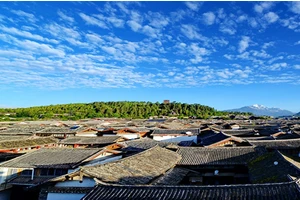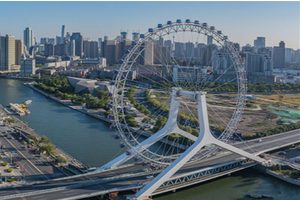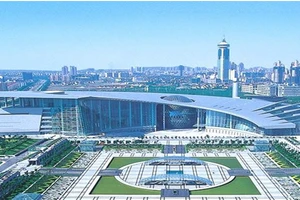Sports tourism economy
Sports economy is mainly based on the infrastructure related to sports activities, which closely links sports activities with economic activities, thus promoting the development of the national economy. The development model of sports economy is mainly divided into two types: one is dominated by the market, and its main representative is the British sports club; Second, the government plays a macro-control role to participate in the management of sports economy, and its main representative is the response measures taken by the Japanese government to the sports industry. The economic functions of the sports industry are as follows: ① People's participation in sports activities will drive sports consumption such as sports facilities and sportswear to promote the development of the national economy; At the same time, the rapid development of the national economy will in turn promote the sports industry, so that the sports industry can better promote economic development. ② People's participation in sports activities will improve their comprehensive quality and make people better serve the sports industry, thus bringing huge economic benefits.
2 the positive role of sports economy in China's economic development
(1) Sports economy has become an emerging force to promote the development of national economy.
In recent years, people pay more and more attention to their own health and strengthen exercise, which at the same time drives sports consumption, and sports economy has begun to become a new force to promote the development of national economy. Compared with the pillar industries such as manufacturing and transportation in China, although the sports economy started late, it has a very broad development prospect and a relatively fast development speed, and it is only a matter of time before the sports economy becomes a pillar industry.
(2) Sports economy will also promote the development of other industries.
Because sports economic activities are closely related to other industries, the rapid development of sports economy will also drive the development of other industries, which is conducive to promoting employment and thus promoting the development of the national economy. For example, firstly, with the rapid development of the sports industry, the sports industry will promote the development of tourism. For example, when there are sports events in a certain place in China, people will visit the local area while watching the sports events. In addition, the sports industry will also promote the development of the service industry. For example, health clubs were born under the demand of people's fitness exercise.
(3) It is conducive to the continuous optimization of China's industrial structure.
Research shows that the relationship between sports industry and communication industry is mutually reinforcing. The development of sports industry needs these industries to pave the way first, and the rapid development of sports industry will in turn promote the development of these industries, which is conducive to the continuous adjustment of China's industrial structure, thus realizing the optimization of industrial structure. In addition, the development of sports economy will also promote the development of the secondary industry and the tertiary industry, thus improving the national economic benefits of our country.
(4) It is beneficial to improve people's comprehensive quality.
Just from the word sports, people will not only exercise their bodies, but also improve their comprehensive quality by participating in sports activities. With good health, the probability of natural illness will be greatly reduced, so people can better serve in their daily work, greatly improve their work efficiency and bring greater economic benefits. Therefore, we should vigorously develop the sports industry to promote the improvement of national quality, so as to improve social productivity.
3 China's specific countermeasures for the development of sports economy
(1) We should give full play to the leading role of the market and improve the legal system of sports economy.
Due to the low degree of marketization of China's sports economy, the speed of China's sports economy has become slow. Therefore, in the development of sports economy, the government should first change its concept, continuously improve the market's attention to the development of sports economy, reduce its intervention in sports economy, and make sports economy gradually market-oriented; Secondly, the government should cooperate with enterprises to develop sports economy and encourage enterprises to develop sports economy. For example, the government should introduce some policies to promote the development of small and medium-sized sports enterprises. In addition, the government should constantly improve the laws and regulations related to sports economy, reduce disputes between enterprises, and better safeguard their own rights and interests.
(2) Enterprises should pay attention to the establishment of "brand" and the innovation of sporting goods.
In view of the power of "brand" and the innovation of sporting goods will greatly promote the development of sports economy, therefore, enterprises should pay attention to the establishment of "brand" and the innovation of sporting goods. First, enterprises should establish "brand", take the localized brand as a foothold, strengthen the brand value of sporting goods, and create their own brand characteristics, thus attracting public attention; Secondly, enterprises should constantly strengthen the publicity of the sports brand through sports events, so as to promote it to the world; Finally, enterprises should continuously introduce advanced innovative technology of sporting goods at home and abroad and high-quality personnel, so as to continuously improve their innovative ability of sporting goods.
(3) Improve the importance of sports intangible assets.
First of all, enterprises should pay more attention to the intangible assets of sports to tap the commercial value it brings; Secondly, enterprises can sponsor sports events and other forms, which will not only enable sports activities to be carried out normally, but also enhance the visibility of enterprises and help achieve "win-win"; Finally, while paying attention to sports events, consumers will also pay attention to these sports enterprises, and they will also choose sports goods under these enterprises when choosing sports goods, which is conducive to improving the economic benefits of enterprises.
4 summary
To sum up, sports economy has played an indispensable role in the rapid development of our national economy. Therefore, in the development of sports economy, firstly, the government should give play to the leading role of the market and constantly improve the legal system of sports economy. At the same time, enterprises should pay attention to the innovation of "brand" and sporting goods. In addition, enterprises should also pay more attention to sports intangible assets, so as to promote the development of China's sports economy in a higher quality and faster speed.
The relationship between sports and economy can be expressed as the dependence and promotion of sports progress on the level of economic development. With the continuous improvement of labor productivity and the application of automatic and computerized production methods, labor time and intensity are reduced, and people's leisure time is increasing. Therefore, leisure sports, outdoor sports, recreational sports and fitness activities continue to develop, thus promoting sports consumption, promoting the development of sports industry and promoting economic development.
First of all, it can promote the development of sports equipment, clothing, beverages, medicines and other industries.
Secondly, in the new economic era, healthy sports enter the market as an opportunity for human survival. The concept of spending money on health makes health a limited resource, which urges people to invest in the sports market.
Third, the development of sports, especially the increase of large and medium-sized international and domestic competitions, requires the construction of sports facilities of different standards; Promote the development of transportation, post and telecommunications, tourism, commerce, catering and entertainment services; Television broadcasting rights, tickets, sports lottery tickets, stamps, commemorative coins, printing propagators and advertisements all play a role in promoting economic development, thus opening up a broad sports market.
With the impact of the wave of commodity economy, the Olympic Games also showed a clear tendency of commercialization, and the Olympic Games played a more obvious role in promoting the economy. In the 1984 Los Angeles Olympic Games, 25,000 jobs were added, the income was increased by 3.29 billion US dollars, and the profit was 225 million US dollars. In the 1988 Seoul Olympic Games, 34,000 jobs were added and the profit was 300 million US dollars. In 1996, the Atlanta Olympic Games increased revenue by 5.1 billion US dollars and gained 10 million US dollars. The total revenue of Sydney Olympic Games in 2000 was 1.756 billion dollars; It is estimated that Beijing's annual GDP will increase by 0.3% due to the 2008 Olympic Games, and the accumulated contribution of the Olympic Games in eight years will be 1.38 trillion RMB.
Prev: Definition of Eco-tourists
Next: Xiaoqiang travel






